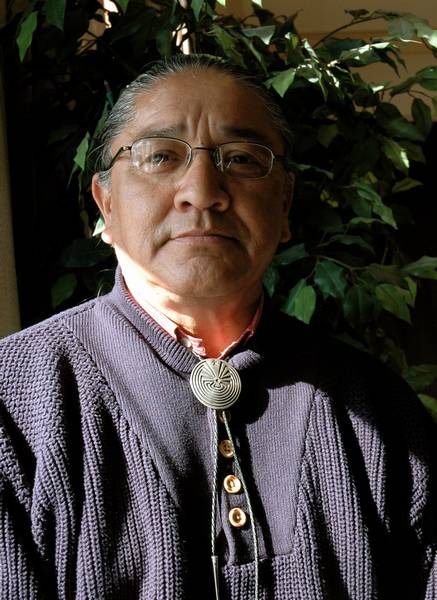PARK CITY, Utah — As Sundance 2006 approaches its end and we stagger from one screening to another fueled almost entirely by blueberry muffins and microwave burritos, it is time to reflect that most moviegoers will have little chance of seeing many of the Sundance films. The system is set up that way. Numbskull action pictures are pounded into the desires of teenage boys by multimillion dollar ad campaigns, and it takes the special moviegoer to seek and find the treasures. A moviegoer exactly like you, for why else would you be reading about this festival of directors who hope to make wonderful films even if the system is indifferent?
I’m writing this in the press room at Sundance, because it has free wi-fi access, free coffee, and (instead of burritos) ham sandwiches and chili. A gourmet paradise. Because I am at a table near the door, people stop to talk to me, and as I meet them I am reminded of the idealism that fuels Sundance. No, the festival has not “gone Hollywood” and is not too “commercialized,” although these people dearly wish Hollywood would notice them, and pay cash for the movies they made by mortgaging their lives.
Here are some people I have met:
* Mike Wilson, a member of the Tohono O’odham Nation, is featured in “Crossing Arizona,” a documentary about Native American people who give aid to Mexicans trying to enter the U.S. through the Sonora Desert, a journey that can take four days. “Hundreds of these people die,” he tells me. “We give them water. That has nothing to do with the law. People do not deserve to die.” Because Indian lands are exempt from federal laws, what he does is in a legal shadowland, but “it is a moral issue, not a legal issue,” he tells me. He hopes I can see the film.
* Susan Norget is the publicist for “Madeinusa,” a title that is one word made of three. It’s a Peruvian film about a village where every year, from the hour of Christ’s crucifixion until the hour of his resurrection, “sin does not exist” because God is dead. She tells me the director, Claudia Llosa, cast all local actors and gets a feeling of immediacy that is uncanny. She hopes I can see the film.
* John Jota Leanos and Sean Levon Nash give me tickets to the Animation Spotlight program Saturday. They worked on “Los ABCs,” a Chicano animated film “which catalogues the real-life testimonies of skeletons who have returned to tell their stories of life and death.” It is, according to the post card they hand me, a “Mariachi sing-along,” and its “silences will be broken with much operatic wagon-burning.” They hope I can see the film,
* Mia Goldman is the director of “Open Window,” starring Robin Tunney as a woman who is raped and is slow to recover; she retreats deeply into herself, where her husband cannot find her. Her film, at least, I have seen, and admired. She tells me Tunney was sad that the work schedule for her “Prison Break” TV series shortened her Sundance stay. Goldman does not say, but I intuit, that although only a fraction of the “Prison Break” audience will ever see “Open Window,” it is for roles that this that actresses like Tunney dream, because they can reach the far edges of their talent.
* I run into Steven Wallace, a publicist for “Eve and the Fire Horse,” a magical first film from Canada by Julia Kwan. I loved its stories of two young Canadian-Chinese girls who bring about a charming and formidably logical fusion of Buddhism and Catholicism in their lives. “It doesn’t have U.S. distribution yet,” he says, “but it opens this weekend in Canada, and the Sundance reception has generated a lot of interest.”
* A little earlier, in the breakfast room at the Yarrow, I met Jim Bennett, who is a vice president of Netflix, Bronagh Hanley, its director of public relations, and Stan Lanning, whose card says he is an “employee.” That means he is either very low down or, more likely, very high up in the Netflix hierarchy. They talk about the retailing theory of the “long tail,” which teaches that although immediate business can be raked in by current best-sellers, the real money is made by churning the back-list. Netflix’s system of “cinematches” tries to pair up customers with movies they might like but have not heard of. Sundance films are tailor-made for matching; the depth of their selection provides hope for films that must live and die outside the mainstream hype.
Now, as I meet Mike Wilson, as I hear about Claudia Llosa and the hours without sin, as I am intrigued by the Mariachi sing-along and operatic wagon-burning, as I remember Robin Tunney’s great performance, as I think of the two little girls picturing Jesus and the Buddha dancing together, I consider that although the best place to see a good movie is in a theater, the worst thing is not to see it at all. No video store can carry every film, but companies like Netflix can try to, and although the retail terminology about “churning the long tail” may not be precisely poetic, at least these films have a chance of being seen.
(Note: For that matter, you can watch “Los ABCs” and a lot of other shorts for free on the Sundance web site. See box above for direct links.)












